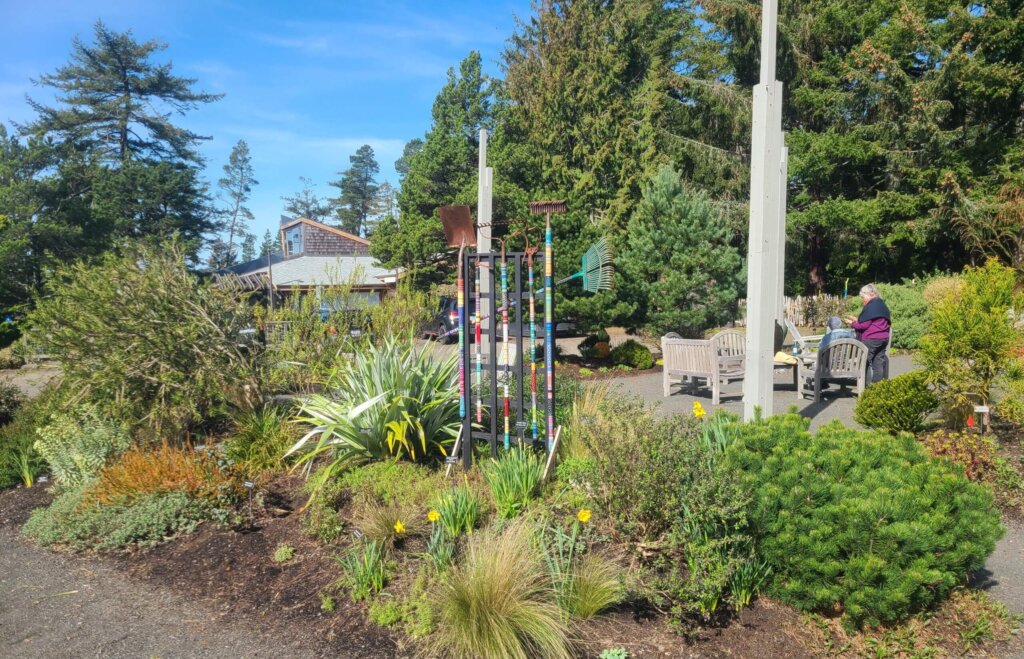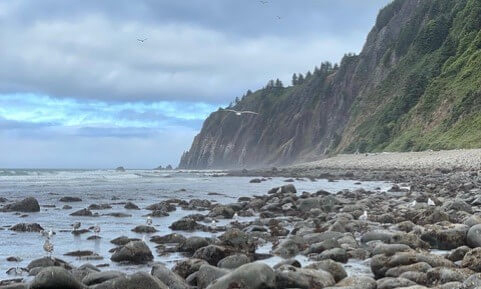Request for Qualifications
2025 Public Art Commission Request for Qualifications
- Application deadline: May 15, 2025
- Budget: $45,000
- Contact email: [email protected]
- HCA Submittable page
- Downloadable RFQ PDF
- April 14-March 15, 2025: RFQ open
- June 2025: Finalists selected & site visits scheduled
- August 2025: Finalist proposals due
- September 2025: Artist selected
The timeline for sculpture fabrication and installation will be determined with the selected artist.
Please note HCA retains the right to adjust the project timeline if circumstances require.
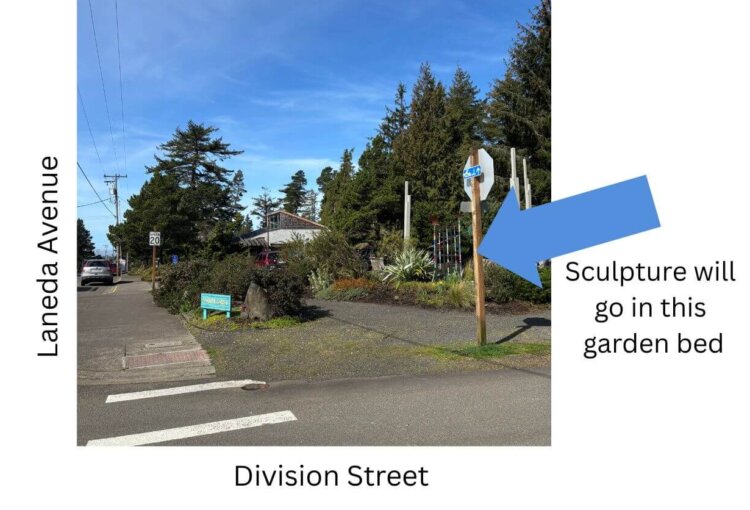
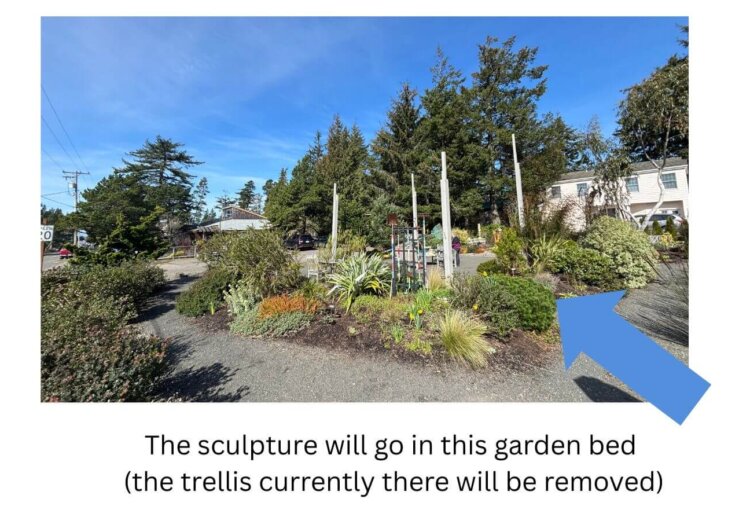
- Artists should live in Oregon.
- Artists should be working with materials that can withstand long-term exposure to the elements without unreasonable degradation.
- Unless otherwise discussed, artists should create a new, site-specific work for this project.
- Art must be able to be relocated in the event of new construction at the Wonder Garden site.
- The art should be inspired by the concept of a “gateway” to the Hoffman Wonder Garden, though no literal gates are expected.
Selection committee:
- Lloyd Lindley, artist
- Joe Thurston, artist
- Ketzel Levine, Wonder Garden Lead
- India Downes-Le Guin, Executive Director
- Janice Slonecker Berman, Board President
- Dave Holt, Board
How to apply
The RFQ is open for submissions, April 14 through May 15, 2025, through the HCA Submittable page. Applicants will need to create a free account to submit, or use an existing one.
Application materials:
- Letter of interest (one page or less; PDF or JPEG)
- Resume (two pages or less; PDF or JPEG)
- Images or videos of relevant work (6-10 uploads; PDF, JPEG, PNG, SVG, TIF, MOV, MP4)
Thank you for your interest! If you have any questions or need any assistance, we are here to help. Please direct your inquiries to [email protected]
Neahkahnie Mountain Poetry Prize
The 2025 Neahkahnie Mountain Poetry Prize
Every January, we encourage poets with connections to our North Oregon Coast community to submit their work for this contest. The first-place winner receives $100 and has their poem published, along with the second- and third-place winners, on the Hoffman Center for the Arts website.
All three poets in 1st, 2nd, and 3rd places will read their winning poems at the Hoffman Center for the Arts during the Airlie Press Poetry Event on Sunday, April 13th, which will celebrate the launch of new poetry collections from Airlie Press.
Poems selected as an “Honorable Mention” will be on display in a monthly rotation on our Poetry Post, located in the HCA Wondergarden on Laneda Avenue.
The contest judge this year is Carey Taylor.
Carey Taylor is the author of Some Aid to Navigation and The Lure of Impermanence. She is the winner of the 2022 Neahkahnie Mountain Poetry Prize, a Pushcart Prize and Best of the Net nominee, runner-up for the Concrete Wolf Louis Poetry Book Award, and has been published both nationally and internationally. She has a Master’s Degree in School Counseling from Pacific Lutheran University. Carey has lived her entire life in the Pacific Northwest and had the rare childhood experience of living at three lighthouse stations. She lives in Portland, Oregon. https://careyleetaylor.com
The 2025 Neahkahnie Mountain Poetry Prize is now complete.
The 2026 Neahkahnie Mountain Poetry prize will open for submissions, January 1-31, 2026, through the HCA Submittable page.
Please direct any questions to [email protected]
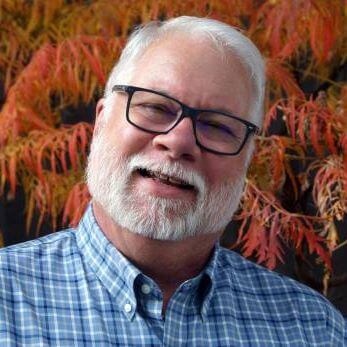
David J.S. Pickering is thrilled that his poem has received the Neah-Kah-Nie Mountain Prize. He is a native of Tillamook County, born at Rinehart Hospital in Wheeler though he will demur when asked in what year. David was raised in Rockaway, and he is a proud graduate of Neah-Kah-Nie High School (Go Pirates!). His first poetry collection, Jesus Comes to Me as Judy Garland, received the Airlie Prize in 2020. Three of his poems have been nominated for the Pushcart Prize, though David will tell you that “close only counts in a game of horseshoes.” His poetry is published (or forthcoming) in a variety of journals including Relief: A Journal of Art and Faith, Passager, Tar River Poetry, Mantis, Fireweed, Lips, Reed Magazine, and Gertrude. David lives with his husband in Portland Oregon where, even as you read this, he has likely had too much coffee.
Carey Taylor, this year’s contest judge, had these comments about David’s winning poem: “Beginning with the title the poet immediately lets the reader know this is a poem about more than buying a home. In ten stanzas of well crafted couplets using clear imagery, humor, reflection and memory the speaker in this poem takes the reader on a journey that travels both place and time only to arrive where all of us ultimately arrive— in our own imagined last place and time”.
Closing on the Last Home
A mid-century unit. Good light and no stairs. A bar
to grab in the shower. A pool. Like me, it needs a lot
of cosmetic lifts, but days slip so quickly through
the calendar grid, and I can’t keep up, so I don’t care
much about looking updated (though I can still put
together an outfit). I’ve got old-man cash, so high
interest didn’t faze me though I remain interested
in the forward-spinning world but it no longer
belongs to me and I’m cranky about that which
has made me the cliché I thought my dad was
walking around saying things like Kids today have
no damn work ethic. Sad, but I’ve had it coming. So
let’s get back to the condo: a cantilevered balcony
overlooks the ocean, and I stand here like a Gabor
accessorized with a fluffy poodle. I’ve become
soft-hearted in my tough-minded atomic age,
loving this splendid place and reminding myself
it’ll be my last. It’s like acquiring a headstone
designed by Mr. Eichler. The last home I’ll buy.
A light-filled place to live. A stylish place to die.
Aladdin Stanley Thermos, Quart Size, with Carrying Handle
asked us not to have—aggrieved by the minister’s dependence
on Jesus to fill in for his lack of knowledge of the man
in ashes before him.
I carried Dad’s beat up, sage-green thermos with me, it more
my father than the velvet-bagged box of dust and bone.
Rough and tumble, always dependable. He was everything,
and nothing much.
I plunked the thermos down on the pulpit, looked out, saw sorrow
like small birds fluffed up to face the chill night ahead. I sang out.
He’s here, deep in this vacuum flask.
He’s here, in this coffee-stained cup.
At 4 a.m., driving empty roads to the log mill, the genie asked
my father what he wished for—more sleep, less pain—
and gave him hot coffee, the warmth easing the ache
in his back where, as yet unknown, cancer bit into bone.
I wanted that thermos, totem of my father.
His second wife—never one to get up early to fill it
with four scoops of Taster’s Choice and boiling water—kept it.
She is dying of emphysema now, and I can’t find the breath
to speak her name.
After a long career flying for a major airline, Kitt Patten is now staying put in one time zone. Writing poetry gives her a new way to look at the world, and in turn, she learns about who she is and where she’s been.
Ravens Tumbling
They lifted on thermals.
Not gently, but thrust upward
as though a god-wind blew hard
into the drinking-glass clear sky,
and the flakes or bits of them
erupted out of its top.
They paused there, commas
between clauses of exhilaration
and dark expectation.
After that wing-tucked half second
the pair unfurled, cockeyed,
and fell turning on both axes,
discarding any cartesian calculus
in the chaos of their freefall.
I felt as I imagined they must,
as if all was lost,
but without it mattering—
to any of us—whether or not
they saved themselves
at the end of the sentence;
In their waiting they had already
inhabited both possibilities.
Logan Garner lives and writes in Warrenton, Oregon at the mouth of the Columbia River. He writes with a sense of place and reverence for nature and strives to capture small moments and memories in the context of their larger landscapes, both natural and figurative.
Come visit, wander, and read!
Astoria Poet Florence Sage is current MC and a regular reader at the monthly Ric’s Poetry Mic in Astoria, a poetry event presenter, and recent poetry columnist for HIPFiSH Monthly. For 25 years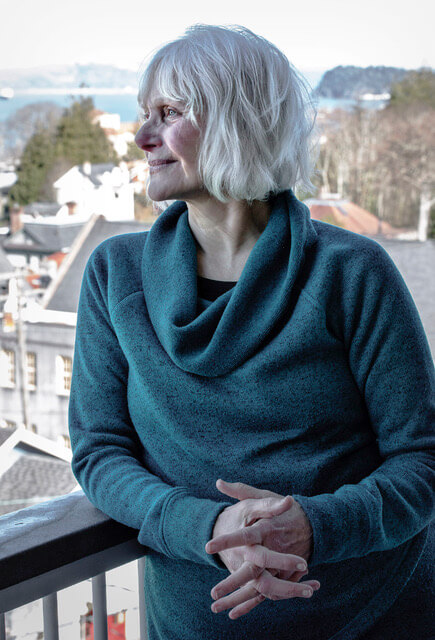 she was a founding production crew member for the annual Fisher Poets Gathering in Astoria.
she was a founding production crew member for the annual Fisher Poets Gathering in Astoria.
Sage has two Master’s degrees and has been an award-winning daily newspaper feature writer-editor in Montana, an Oregon-licensed counselor, and most recently a social sciences and philosophy college teacher. As a poet, she has been the subject of several stage and radio interviews and feature articles in the region.
Losses have given her an interest in the physics of change.
Her full-length poetry collections are: Nevertheless: Poems from the Gray Area (2014); The Man Who Whistled, The Woman Who Wished: A Polish-Canadian Story (2021); What to Do with Night: Poems (2023). All are at RiverSea Gallery, Godfather’s and Time Enough Books, and in Astoria and Warrenton libraries.
Photo Credit: David Lee Meyers
The contest judge, Logan Garner, commented “The collection of images in this piece, both elegy and love poem, hold up entropy as a mirror (or perhaps an explanation) for loss, aging and loneliness—topics we tend to avoid, yet which are unavoidable. At once fatalistic and grateful for the present, Goodbye reminds us that, in spite of the inevitable—whether we can truly prepare for it or not—we are yet part of a greater, magnificent whole, just enough comfort to bear it all. I read this poem on a loop for several minutes, just for it not to come to and end. But, as the narrator so beautifully teaches, it must.”
Goodbye
The Second Law of Thermodynamics
Not solid after all, the rings of Saturn,
but gasses and dispersing
under the law of loss
to someday leave the planet bare
while already giant Titan speeds away
from all the other moons, oh Saturn.
Even Earth can’t hold our moon for good
as it inches each year from our grasp
until our only nighttime company is gone
and anyway the moon is shrinking now,
the surface caving in, as faces do,
buckling and crumpling into dips and crags
until the contours disappear
that give us the man in the moon.
But long before physics dismembers the sky
to leave Earth lonely in the dark
you will lose me
and I will lose you
no matter how much we try
so kiss me goodbye every night
while we can.
Stillicide
Little Frida Magdalena Carmen,
How preciously you paint on uneven legs
dabbling so sweetly with spider monkeys and parrots
Playing out your bloody fantasies,
the pink of your painkillers, the orange of overdose,
the leg amputations and gangrenous toes
How darling, adorable of you
to trace La Llorona, murderer of children.
For, of failed abortions and miscarriages
How much can you know?
Of a pelvis impaled by a handrail of iron,
Of corsets fashioned from plaster and steel?
You, satin ribbon wrapped round a bomb,
You, dove chained in marriage to an elephant,
whose night trysts with your sister bring
children to dandle on your knee
Delicate mestiza flower,
What can you know of art, trapped there behind an easel
strapped to your bed in La Casa Azul?
Where you peer in that mirror,
at a life lived while dying,
dipping brushes into peasant clothing—
huipils, rebozos and Aztecan legends
Paint with your own eyes and nothing more, my dearest darling
Sketch skeletons and black angels to watch
from the length of your four-poster bed
Use paint as a pain killer, oh precious one.
And when you are gone, we will bury you sweetly
beneath a girlish flag of communist red
Marianne Monson is the author of twelve books for children and adults, with an emphasis on frontier-era women’s history. Marianne holds an MFA in Creative Writing from Vermont College of Fine Arts is founder of a literary nonprofit, The Writer’s Guild, and writes from a 100-year-old house in Astoria, Oregon.
Crocodile Rock
I remember when —
I remember when I was twelve
And danced with Dan
In my Grandmother’s basement
To Elton
Over and over
Plucking the needle off the vinyl
And oh-so-lightly nestling the sharp point back in the groove
We constructed hot-wheel race tracks
And played pool
And thought we had discovered the
Magic of music
I lost touch with Dan when
My family moved to Arizona
A thorny desert
And decades later, when I tracked him down
His confused grammar and jumbled stories
Of manic fixations and desperate lows
Were so different and strange
And not the boy I remembered
That I stepped away
And when he sent a card saying he
Was running for president
I sent him a twenty dollar bill
Garth Upshaw lived in Portland for 37 years and Astoria/Warrenton is where he spends much of his vacation time. His sister-in-law lives in Warrenton, and a dear artist friend lives in Astoria. He feels a strong connection to the river and the ocean and loves camping in Fort Stevens.
Connie Soper, “The Language of Solitude”
Karen Keltz, “Studying War”

